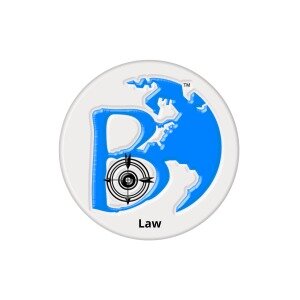Best Energy Regulatory Law Lawyers in Jamaica
Share your needs with us, get contacted by law firms.
Free. Takes 2 min.
Or refine your search by selecting a city:
List of the best lawyers in Jamaica
About Energy Regulatory Law in Jamaica
Energy Regulatory Law in Jamaica is a specialized area of law that governs the production, distribution, and consumption of energy within the country. This field encompasses the rules and regulations set by government authorities to ensure the safe, reliable, and fair operation of the energy sector. In Jamaica, the main sources of energy include electricity, petroleum, natural gas, and renewables such as solar and wind. Regulatory oversight is crucial for balancing the interests of consumers, energy producers, investors, and the environment. The legal framework addresses licencing, tariffs, safety standards, environmental compliance, and dispute resolution, aiming to guide sustainable energy development and protect all stakeholders.
Why You May Need a Lawyer
Seeking legal assistance in Energy Regulatory Law may become necessary in various situations. Some of the most common reasons include:
- Negotiating and drafting energy supply agreements or contracts
- Navigating the application and renewal process for energy-related licences and permits
- Dealing with regulatory compliance and responding to enforcement actions by authorities
- Challenging or appealing regulatory decisions, such as tariff determinations or licence refusals
- Resolving disputes involving land acquisition for energy projects
- Ensuring compliance with environmental and safety requirements
- Advising on renewable energy projects and government incentive programs
- Guiding investors in the energy sector through local laws and procedures
- Handling matters related to grid connection, access, and third-party energy sales
- Assisting with mergers, acquisitions, and partnerships within the energy sector
A lawyer who specializes in Energy Regulatory Law can help protect your interests, ensure compliance with local regulations, and represent you during negotiations or before regulatory bodies.
Local Laws Overview
Jamaica’s energy sector is primarily governed by several key statutes and regulatory bodies. The main authority is the Office of Utilities Regulation (OUR), established under the Office of Utilities Regulation Act. The OUR is responsible for overseeing electricity, water, and other utility sectors, issuing licences, setting tariffs, and monitoring service quality.
The main laws and regulations relevant to Energy Regulatory Law in Jamaica include:
- The Electricity Act: Governs the generation, transmission, distribution, and supply of electricity. It outlines the licencing process and requirements for energy providers.
- The Petroleum (Quality Control) Act: Regulates the importation, storage, and sale of petroleum and related products.
- The OUR Act: Establishes the regulatory powers and responsibilities of the Office of Utilities Regulation.
- The National Energy Policy: Provides a framework for energy sustainability, efficiency, and the promotion of renewable energy sources.
- Environmental Regulations: All energy projects must adhere to environmental protection standards as administered by the National Environment and Planning Agency (NEPA).
Additional sector-specific rules and best practice guidelines may also apply, especially for new and renewable energy projects.
Frequently Asked Questions
What is energy regulatory law?
Energy regulatory law is the body of rules, regulations, and legal principles that govern the generation, transmission, distribution, and sale of energy. In Jamaica, this includes both traditional and renewable energy sources.
Who regulates the energy sector in Jamaica?
The Office of Utilities Regulation (OUR) is the primary regulatory authority overseeing Jamaica’s energy sector, including electricity, natural gas, and some aspects of petroleum.
How can I obtain a licence to operate an energy business in Jamaica?
Licences are issued by the OUR. The process involves submitting an application with detailed technical, financial, and operational information about your proposed energy business. Legal counsel can help ensure your application meets all requirements.
What are the main compliance requirements for energy companies?
Energy companies must comply with all relevant laws relating to safety, environmental protection, tariff regulations, and service reliability. Regular reporting and inspections may be required.
Can foreign investors participate in Jamaica’s energy sector?
Yes, foreign investors are welcome, though they must comply with local licencing, regulatory, and tax requirements. Legal guidance is essential for navigating these rules.
Are there incentives for renewable energy projects?
Yes, Jamaica offers a range of incentives to promote clean and renewable energy, including tax benefits and streamlined approval processes. Details can be obtained from specific government programs.
How are electricity rates set?
The OUR sets electricity rates based on a regulatory process that reviews the costs of production, transmission, distribution, and fair profit margins, aiming to balance consumer affordability and provider sustainability.
What happens if there is a dispute with a utility provider?
Disputes with utility providers can be resolved through complaints processes set by the OUR, mediation, or court proceedings. Legal representation may be advisable, depending on the complexity of the issue.
What role does NEPA play in energy projects?
The National Environment and Planning Agency (NEPA) ensures that all energy projects adhere to environmental protection standards, including conducting impact assessments and granting environmental permits.
Why should I consult an energy regulatory lawyer?
A lawyer experienced in energy regulatory matters can help you interpret laws, secure necessary approvals, represent you in disputes, and protect your interests while ensuring regulatory compliance.
Additional Resources
- Office of Utilities Regulation (OUR): The main regulatory body for utilities, including the energy sector.
- National Environment and Planning Agency (NEPA): Responsible for environmental compliance and permits for energy projects.
- Ministry of Science, Energy and Technology: Sets overall policy direction and provides information on national energy strategies and opportunities.
- Jamaica Public Service Company (JPS): The main electricity utility provider, useful for those seeking information on grid access or working with the utility sector.
- Jamaica Chamber of Commerce: Useful for networking and resources related to investing or starting energy businesses.
Next Steps
If you require legal assistance in the field of Energy Regulatory Law in Jamaica, take the following steps:
- Identify and clarify your specific legal needs, such as licencing, compliance, or dispute resolution.
- Gather all relevant documentation, such as permits, correspondence, and contracts.
- Research and shortlist lawyers or law firms with experience in energy regulatory matters.
- Contact your chosen legal professional to arrange a consultation and discuss your case in detail.
- Follow their advice regarding the next actions, whether it is application preparation, responding to regulatory authorities, or pursuing formal dispute resolution.
By working with a qualified energy regulatory lawyer, you can navigate Jamaica's complex legal landscape with greater confidence and ensure compliance with all applicable laws and regulations.
Lawzana helps you find the best lawyers and law firms in Jamaica through a curated and pre-screened list of qualified legal professionals. Our platform offers rankings and detailed profiles of attorneys and law firms, allowing you to compare based on practice areas, including Energy Regulatory Law, experience, and client feedback.
Each profile includes a description of the firm's areas of practice, client reviews, team members and partners, year of establishment, spoken languages, office locations, contact information, social media presence, and any published articles or resources. Most firms on our platform speak English and are experienced in both local and international legal matters.
Get a quote from top-rated law firms in Jamaica — quickly, securely, and without unnecessary hassle.
Disclaimer:
The information provided on this page is for general informational purposes only and does not constitute legal advice. While we strive to ensure the accuracy and relevance of the content, legal information may change over time, and interpretations of the law can vary. You should always consult with a qualified legal professional for advice specific to your situation.
We disclaim all liability for actions taken or not taken based on the content of this page. If you believe any information is incorrect or outdated, please contact us, and we will review and update it where appropriate.
Browse energy regulatory law law firms by city in Jamaica
Refine your search by selecting a city.










